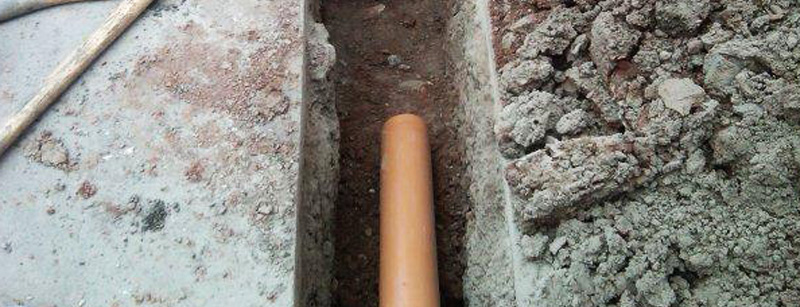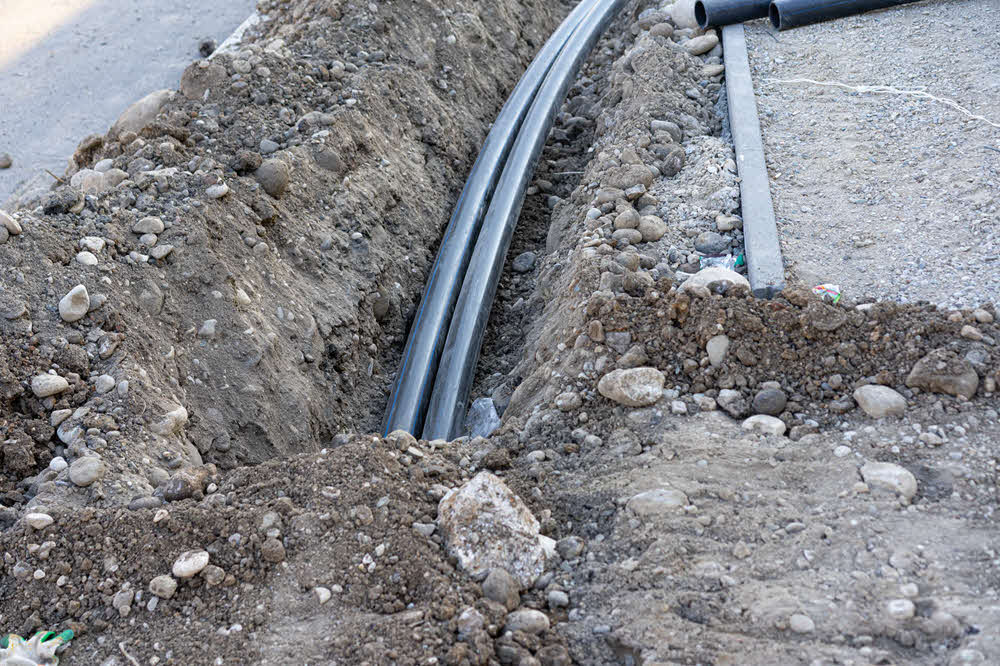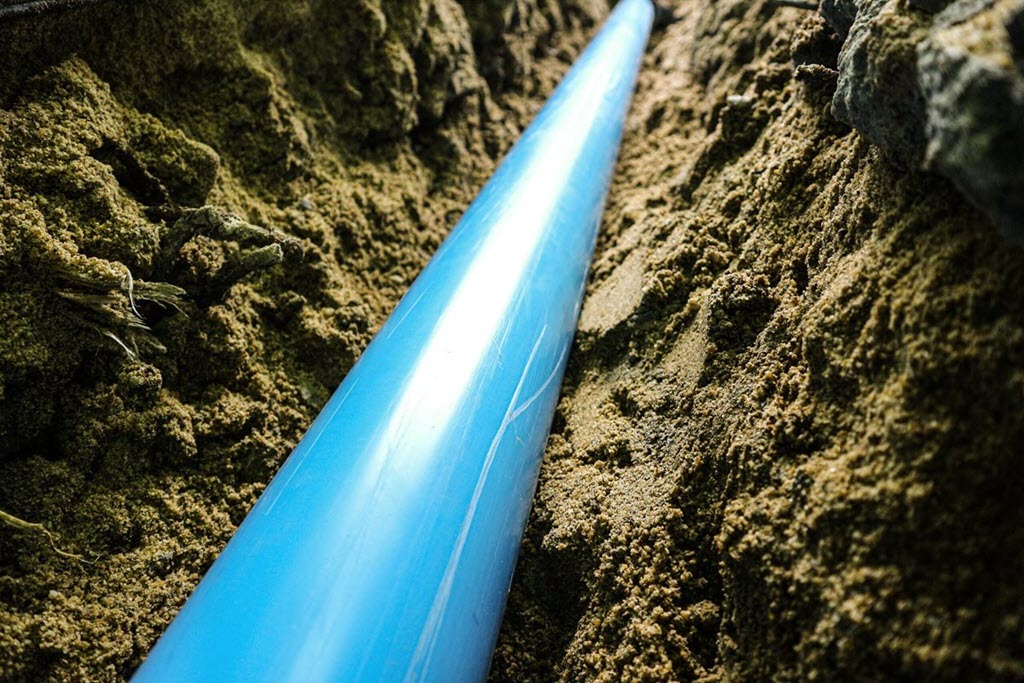Pipe Laying Servicesin Washington MI
Pipe Laying Services to Support Efficient Infrastructure Development
We Are Locally Owned & Operated For Over 37 Years
Contact Us Today!
We Serve Businesses In And Around The Following Cities:
About Pipe Laying Services
Introduction: The Significance of Pipe Laying in Washington’s Commercial Properties
With the ever-evolving cityscape of Washington DC and the increasing growth of commercial properties, pipe laying has emerged as an indispensable process. It plays a vital role in availing essential utilities such as water, gas, and sewer services. The infrastructure of any major urban hub, including Washington DC, is significantly underpinned by the crucial work of pipe laying. This comprehensive guide will delve into the nitty-gritty of the pipe laying process, detailing numerous aspects such as stormwater drains, running propane lines underground, and underground storm pipe installations.
The Intricacies of Pipe Laying
In its essence, pipelaying involves complex planning, precise execution and a variety of materials. Pipes used can range from PVC stormwater pipes for managing rainwater runoff to specialty pipes for running gas lines underground. The material chosen largely depends on the intended utility. Notably, working with gas lines presents unique challenges and safety protocols, necessitating expert handling by seasoned professionals, such as the ones at D&J Contracting.
Just as running propane lines underground requires special consideration and skill, implementing an effective stormwater drain system is equally demanding. Most commercial buildings in Washington require an efficient drain pipe system for rainwater to avoid flooding and related damage. Designs vary, but all rely heavily on the expertise of pipe laying professionals for proper installation. Firms like D&J Contracting, with their extensive experience, ensure these systems operate optimally, leveraging techniques like underground storm pipe installations where necessary.
Benefits of Effective Pipe Laying
A well-executed pipe laying project provides numerous benefits. Proactive underground sewer pipe installations reduce the risk of future maintenance headaches, offering commercial buildings reliable and efficient waste disposal solutions. Efficient PVC storm water pipe systems admirably manage rainwater, ensuring the safety and sustainability of the property. It is clear from real-world applications that effective pipe laying significantly contributes to the long-term resale value and functionality of commercial properties.
Furthermore, running gas lines underground is not just a matter of convenience – it is often a safety requirement for commercial properties. Professionals from D&J Contracting are well-versed in safely handling the installation of gas lines, ensuring they meet the strictest regulatory standards.
The Real-world Applications of Pipe Laying
One cannot overlook the pivotal role of pipe laying when assessing the practical applications and importance of infrastructure development. Whether it involves running a propane line underground in a restaurant district or installing a drain pipe for rainwater in a commercial retail complex, these processes significantly impact the viability and operability of a built environment.
For instance, consider a growing business district in Washington. As office towers and commercial properties rise, developers must consider efficient ways to manage storm water, carry gas lines and install sewer systems. Enter D&J Contracting, where pipe laying expertise becomes a beacon of quality, assurance, and practical importance. Their accomplished professionals ensure all underground installation projects are executed meticulously to facilitate the smooth functioning of buildings. Their repertoire ranges from running gas pipe underground to installing a PVC storm water pipe, demonstrating their holistic approach to the pipe laying process.
The Proactive Approach to Pipe laying
To achieve lasting success and reliability in commercial property development, proactive approaches to pipe laying are essential. Future-proofing through quality materials and expert execution is of paramount importance. A poorly planned or executed pipe laying project may lead to property damage, costly remediation or even safety concerns. It is this understanding that underwrites the actions of D&J Contracting as they prioritize durability and longevity in their pipe laying projects, ensuring peace of mind for all stakeholders.
Reflection: Choosing Quality Services for Pipe Laying
In the vibrant landscape of Washington’s commercial properties, it is clear that high-quality pipe laying contributes substantially to a property’s operational integrity and overall success. From laying drain pipes for rainwater management to running gas lines underground, these behind-the-scenes processes significantly shape a building’s functionality and desirability. It pays to hire professionals who consider every minute detail with precision, expertise, and forward-thinking. Experts such as D&J Contracting not only meet these criteria but often exceed them, making them a sensible choice for all pipe laying needs. Ultimately, the quality of services you choose today will continue to have an impact long into the future, and it’s crucial we bear this in mind when investing in infrastructure projects such as pipe laying.
Pipe Laying Services Gallery


Call Us Today to receive your Free Quote for
Pipe Laying in Washington
Serving: Washington, Michigan

About Washington, Michigan
Washington Township was organized in 1827. It is home to the historic Octagon House, built by Loren Andrus from 1858 to 1860.
Westview Orchards was founded in what is now Washington Township in 1813. The Mount Vernon Cemetery, located at the southeast corner of Mt. Vernon Road and 28 Mile Road, is evidence of a former settlement, named for George Washington’s estate. The village of Mount Vernon once had a post office with William Austin Burt as its first postmaster in 1832.
Washington Township is in northwestern Macomb County and is bordered to the west by Oakland County. The village of Romeo is partially in the northeast part of the township. Ray Township is to the east, Shelby Township is to the south, and Bruce Township is to the north. Washington Township is 28 to 34 miles (45 to 55 km) north of downtown Detroit.
According to the United States Census Bureau, the township has a total area of 36.9 square miles (96 km), of which 35.6 square miles (92 km) are land and 1.3 square miles (3.4 km), or 3.46%, are water.
- Clifton Mills is an unincorporated community near the intersection of 31 Mile Rd. and Mt. Vernon Rd. (42°47′06″N 83°05′10″W / 42.78500°N 83.08611°W ;Elevation: 853 ft./260 m.).
- Mount Vernon is an unincorporated community in the southwest portion of the township at Mt. Vernon and 28 Mile Roads (42°44′31″N 83°05′13″W / 42.74194°N 83.08694°W ;Elevation: 830 ft./253 m.).
- Romeo is a village in the northeast corner of the township. Most of the village is in adjacent Bruce Township.
- Washington is an unincorporated community in the south central portion of the township just west of M-53 at 42°43′28″N 83°02′10″W / 42.72444°N 83.03611°W. Located at the intersection of North 26 Mile Rd. and VanDyke Ave.
As of the census of 2010, there were 25,139 people (up from 19,080 in 2000), 9,258 households, and 7,160 families residing in the township. The population density was 699.2 inhabitants per square mile (270.0/km). There were 9,258 occupied housing units and 612 vacant units. The racial makeup of the township was 94.8% White, 1.6% African American, 0.2% Native American, 1.0% Asian, 0.04% Pacific Islander, 1.0% from other races, and 1.3% from two or more races. Hispanic or Latino people of any race were 3.9% of the population.
There were 9,258 households, out of which 32.9% had children under the age of 18 living with them, 64.9% were married couples living together, 8.9% had a female householder with no husband present, and 22.7% were non-families. 19.2% of all households were made up of individuals, and 7.6% had someone living alone who was 65 years of age or older. The average household size was 2.70 and the average family size was 3.11.
In the township the population was spread out, with 25.0% under the age of 18, 7.3% from 18 to 24, 23.3% from 25 to 44, 30.3% from 45 to 64, and 14.1% who were 65 years of age or older. The median age was 41 years. For every 100 females, there were 97.8 males. For every 100 females age 18 and over, there were 94.7 males.
The median income for a household in the township was $68,841 in 2000 and $83,348 in 2016; the median income for a family was $78,988 in 2000 and $94,057 in 2016. In 2000, males had a median income of $60,721 versus $31,213 for females. The per capita income for the township was $38,657. About 5.7% of families and 7.1% of the population were below the poverty line (up from 2.8% of families and 3.7% of all individuals in 2000), including 9.6% of those under age 18 (up from 5.0% in 2000) and 5.9% of those age 65 or over (up from 2.7% in 2000).
The township has a supervisor-board style government with an elected supervisor, clerk, treasurer and four trustees.
The school districts serving the township residents are Romeo Community Schools, Utica Community Schools, and Rochester Schools from Oakland County.
Call Us Today to receive your Free Quote for
Pipe Laying in Washington
Related Services in Washington, Michigan
We Serve Businesses In The Following Zip Codes:
48007, 48015, 48021, 48026, 48035, 48036, 48038, 48042, 48043, 48044, 48045, 48046, 48047, 48048, 48050, 48051, 48066, 48071, 48080, 48081, 48082, 48083, 48084, 48085, 48088, 48089, 48090, 48091, 48092, 48093, 48098, 48099, 48225, 48230, 48236, 48310, 48311, 48312, 48313, 48314, 48315, 48316, 48317, 48318, 48397